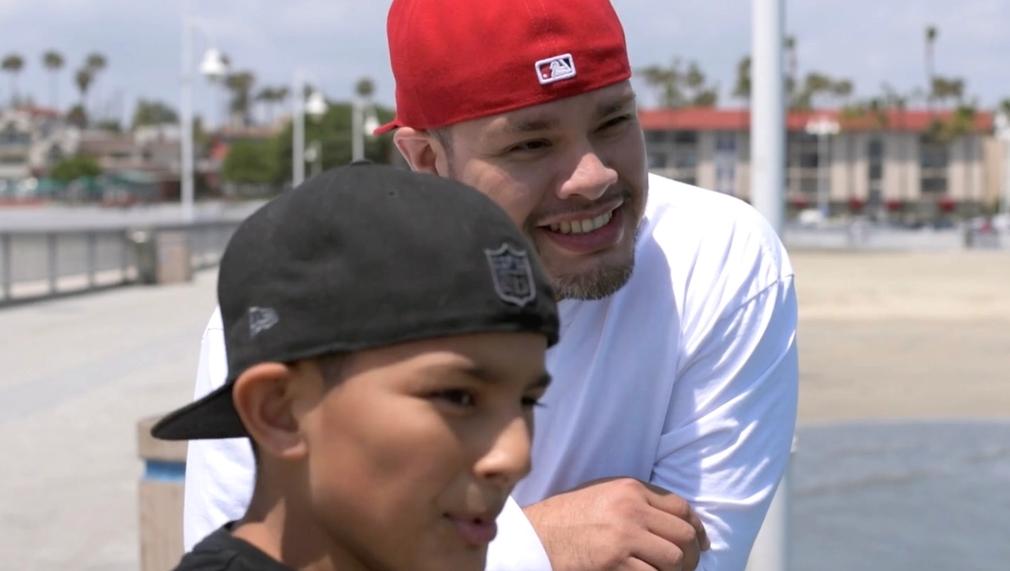Project Fatherhood
Families Uniting Families (FUF) will launch a workforce development initiative for parents with lived experience in the child welfare system. We will train four of our alumni as Community Health Workers, who will provide peer mentoring to parents in our Project Fatherhood (PF) program and outreach to others in the community, as well as a Career Coach to help parents access job training. By pairing economic opportunity with trusted peer care, we will promote family stability, prevent child maltreatment and ultimately build a safer LA County.

What is the primary issue area that your application will impact?
Community safety
In which areas of Los Angeles will you be directly working?
Long Beach
In what stage of innovation is this project, program, or initiative?
Pilot or new project, program, or initiative (testing or implementing a new idea)
What is your understanding of the issue that you are seeking to address?
In LA County, 1.3 million people — 13.9% of residents — live in poverty, including 22% of children. In Long Beach, 15% of residents and 18% of children under five live below the poverty line (City of LB, 2023). Economic hardship, overcrowding and lack of access to care contribute to domestic violence and child abuse. A study of California children born in 1999 found 4.3% entered foster care and 1.1% experienced termination of parental rights — often due to poverty, not malice (Wildeman, C., & Edwards, F. R., 2020). Yet our systems typically respond with removal rather than support. Families need mental health care, parenting help and economic security, which research shows helps to reduce abuse and violence (Center of Study of Social Policy, 2020). In communities like Long Beach, addressing income inequality is essential to public safety. It protects children, stabilizes families and interrupts cycles of harm that perpetuate foster care involvement and incarceration.
Describe the project, program, or initiative this grant will support to address the issue.
FUF’s PF program supports LA County families at risk of or currently involved with the child welfare system. In partnership with DCFS, PF provides clinical case management to parents whose children were removed due to unsafe conditions, helping them meet court mandates, access behavioral health services and achieve safe reunification. Recognizing that poverty and unemployment are major drivers of family separation, PF embeds economic mobility into its model.
With funding from LA2050, we will launch a workforce development initiative. We propose to hire four PF alumni as part-time Community Health Workers (CHWs), who will be trained and certified through partners like Tarzana Treatment Centers College and Monrovia Community Adult School. CHWs will provide peer support to parents enrolled in our PF program, as well as engage with at least 100 other local parents through outreach at schools, parks, food banks, courts and churches. CHWs will play a crucial role in supporting family stability by connecting families to resources and advocating for their needs.
A full-time Career Coach will not only help support CHWs as they engage in this work but also help up to 80 parents access job training and pathways to certification as CHWs or Peer Support Specialists. By addressing income inequality, reducing stigma and building family resilience, the program will strengthen community safety and improve outcomes for foster- and system-impacted families.
Describe how Los Angeles County will be different if your work is successful.
If successful, this project will reduce child maltreatment, domestic violence and recidivism — building on PF’s 10-year recidivism rate of under 1%. Parents will gain tools to stabilize their families, and trained CHWs will extend that impact to others. We thus expect more parents to engage in mental health care, job training, parenting classes and school involvement — strengthening family well-being and safety. Additionally, as more parents pursue certification as CHWs and/or other degrees, our culturally responsive workforce will grow. This localized model in Long Beach will serve as a proof point: by embedding peer-led employment and prevention supports into child welfare, housing, and reentry systems, we can then scale across LA County. Over time, lived experience will become a workforce asset that drives safer neighborhoods, stronger family networks, and a more equitable, connected Los Angeles.
Approximately how many people will be impacted by this project, program, or initiative?
Direct Impact: 184
Indirect Impact: 500